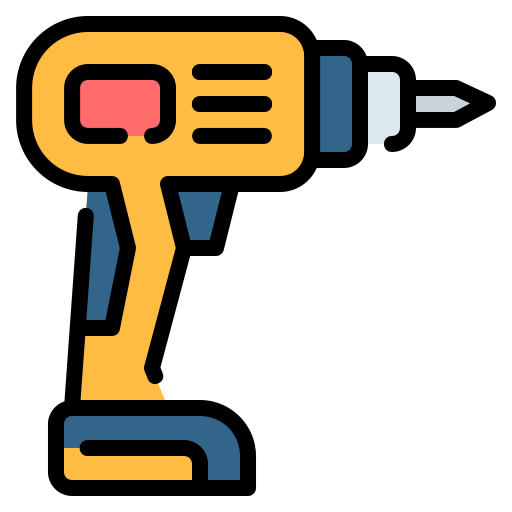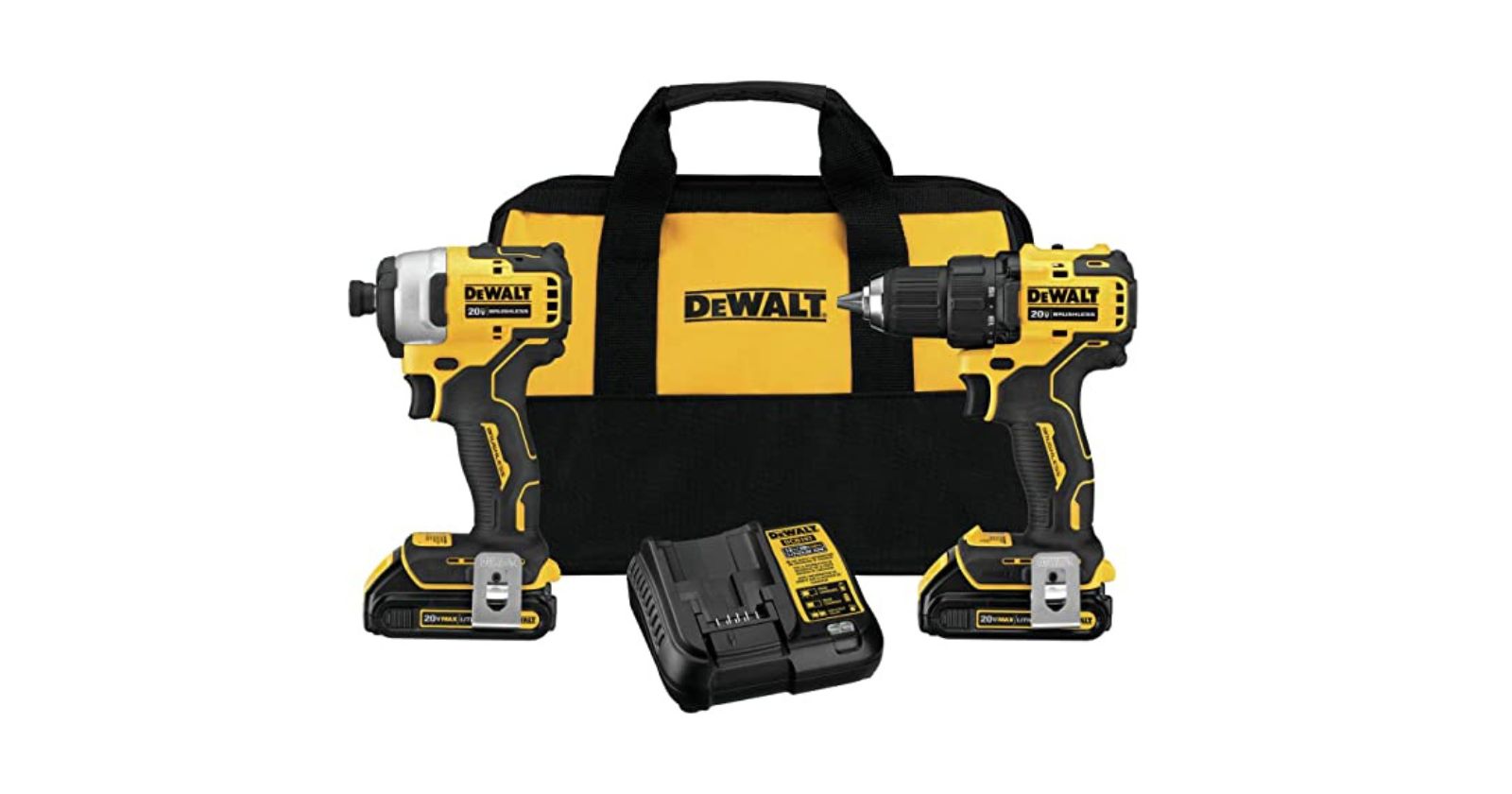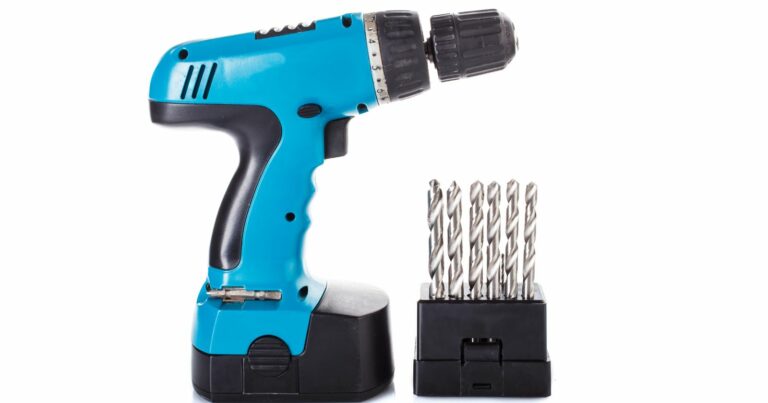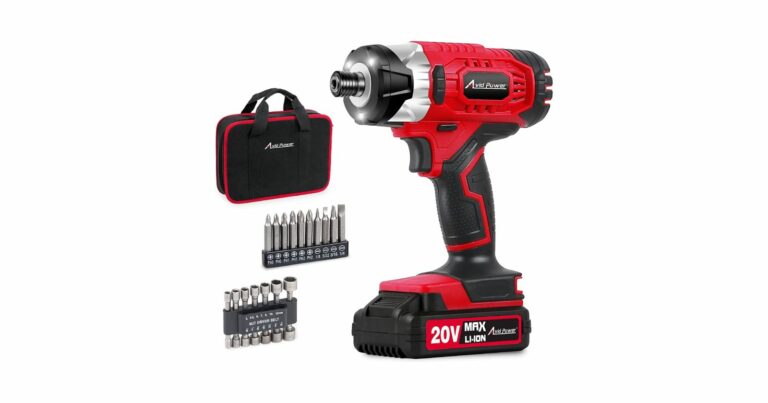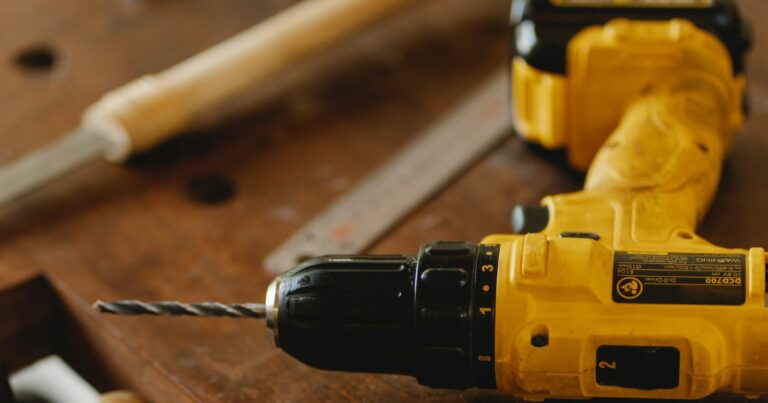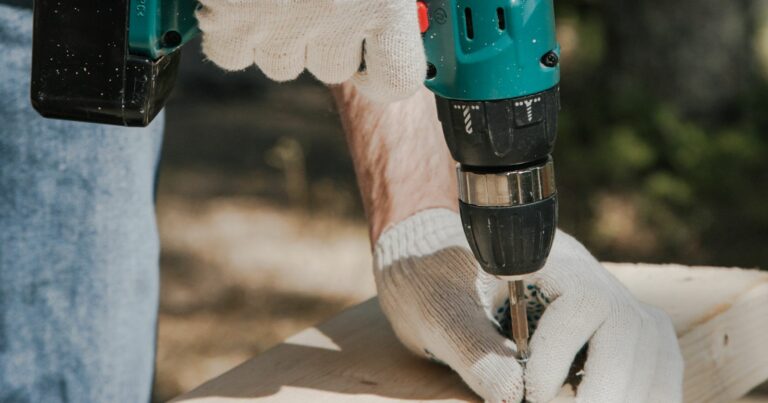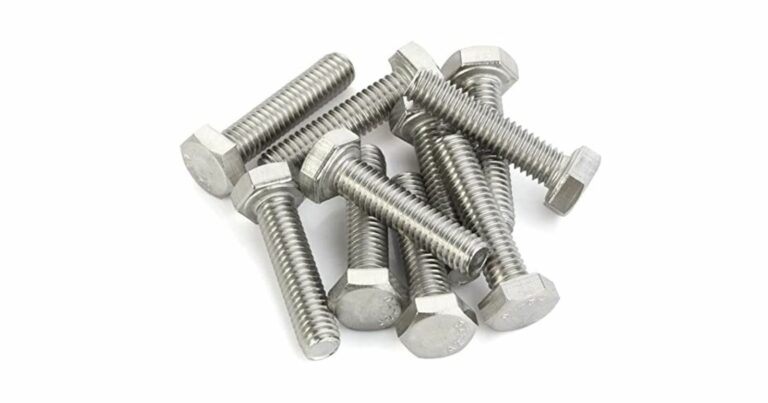When To Use Hammer Drill vs Impact Driver
Whenever I embark on DIY projects or engage in construction work, I fully comprehend the paramount importance of having the right tools at my disposal. The right tool not only makes the job easier but also ensures that I can complete the task efficiently and safely. Among the myriad of tools that I often use, hammer drills and impact drivers hold a significant place. They are staples in my toolkit, and for a good reason.
Despite their similar appearances and the fact that they both can drill holes and drive screws, these tools serve distinct functions and have specific applications. A hammer drill, with its pulsating mechanism, is designed to drill into hard materials like concrete and brick. On the other hand, an impact driver, with its high torque, is a champion at driving screws, making it a favorite for carpentry and construction work.
In this article, I will personally delve into the topic of when to use a hammer drill versus an impact driver. I’ll shed light on the key differences between these two tools, discussing their unique features, strengths, and the situations where each tool excels. I’ll also share some of my personal experiences using these tools, offering practical insights that can help you understand which tool is right for your specific needs.
Whether you’re a seasoned professional, a DIY enthusiast, or a beginner just starting your journey into the world of home improvement and construction, knowing when to use a hammer drill versus an impact driver can make a world of difference in your work. So, let’s dive in and explore these tools in depth.

What is a Hammer Drill?
A hammer drill is a power tool used for drilling into tough materials such as concrete, brick, and stone. The drill works by using a hammering action while rotating the drill bit, allowing it to bore through hard materials quickly. The hammering action is achieved by a piston that strikes the back of the drill bit, creating an impact that helps to break up the material being drilled.
Common Uses for Hammer Drills
- Drilling into hard materials like concrete or masonry
- Creating holes for anchors or screws in concrete or brick walls
- Installing pipes or electrical wiring into concrete or brick walls
- Demolition work
Types of Materials Best Suited for Hammer Drills
- Concrete
- Brick
- Stone
- Masonry
What is an Impact Driver?
An impact driver is a power tool designed to drive screws and bolts quickly and efficiently. Unlike a regular drill, an impact driver uses a rotary hammering action to provide additional torque, making it easier to drive screws and bolts into hard materials. The tool also has a hexagonal socket that accepts hexagonal driver bits, making it versatile for a range of applications.
Common Uses for Impact Drivers
- Driving screws and bolts into wood or metal
- Removing stripped or rusted screws or bolts
- Installing decking or fencing
- Building furniture or cabinetry
Maybe its time to get a impact driver and hammer drill set. Check out the Best Impact Driver Drill Set.
Types of Materials Best Suited for Impact Drivers
- Wood
- Metal
- Soft masonry
- Drywall
When to Use Hammer Drill vs Impact Driver
If you’re working with tough materials like concrete, brick, or stone, a hammer drill is the right tool for the job. The hammering action of the drill bit helps to break up the material, making it easier to drill into. Hammer drills are also useful for creating holes for anchors or screws in concrete or brick walls, and for installing pipes or electrical wiring. Additionally, hammer drills can be used for demolition work.
Advantages of Using a Hammer Drill
- High torque output
- Fast drilling speed
- Can handle tough materials
- Can create large-diameter holes
- Ideal for heavy-duty applications
Tips for Using a Hammer Drill Safely and Effectively
- Wear eye and ear protection
- Use a masonry drill bit designed for use with a hammer drill
- Apply firm pressure to the drill to avoid slipping
- Allow the drill to cool down between uses to prevent overheating
- Be aware of electrical cables or plumbing that may be hidden behind walls
When to Use Both
While hammer drills and impact drivers have their own specific uses, there are times when you may need to use both. For example, if you’re building a deck, you may need to use a hammer drill to create holes for the anchor bolts and an impact driver to drive the screws into the wood. Similarly, if you’re installing a concrete or brick wall, you may need to use a hammer drill to create the holes for the anchors and an impact driver to drive the screws into the wall.
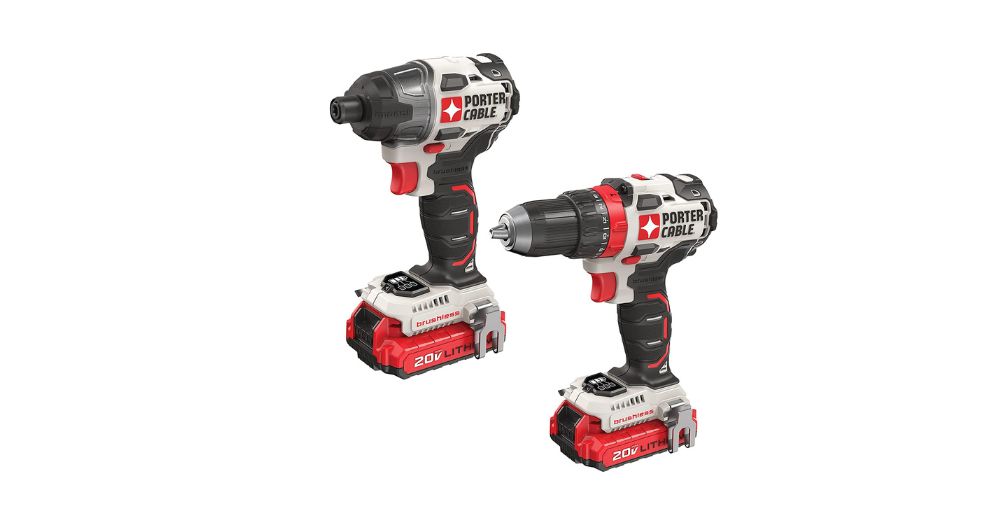
Safety Tips
When I’m using power tools like hammer drills and impact drivers, I always make safety my top priority. These tools are incredibly useful, but they can also be dangerous if I don’t handle them correctly. Here are some safety tips I always keep in mind:
Proper Handling
Securing My Work: I always make sure the material I’m working on is securely clamped or held in place. This prevents it from moving around while I’m drilling or driving screws, which could lead to accidents.
Using Both Hands: Whenever possible, I use both hands to operate my tool. This gives me better control and helps to absorb any reactive force if the tool binds up.
Avoiding Overreaching: I keep a stable footing and avoid overreaching. I could lose balance and control of the tool if I stretch too far.
Maintenance
Regular Inspection: I regularly inspect my tools for any signs of wear or damage. This includes checking the cord, switches, and any moving parts. If I find any issues, I get them repaired before using the tool again.
Cleaning Tools: I keep my tools clean. Dust and debris can affect the tool’s performance and even cause it to overheat. I use a soft brush or compressed air to clean my tools after each use.
Proper Lubrication: Some parts of these tools may require lubrication for smooth operation. I refer to my tool’s manual for specific instructions.
Storage
Disconnecting Power: I always disconnect the tool from the power source before storing it. For cordless tools, I remove the battery.
Dry and Cool Place: I store my tools in a dry and cool place. Moisture and heat can damage the tools and reduce their lifespan.
Organized Storage: I keep my tools organized. This not only makes it easier to find what I need, but it also prevents tools from getting damaged by banging against each other.
Personal Protective Equipment (PPE)
Eye Protection: I always wear safety glasses or goggles to protect my eyes from flying debris.
Hearing Protection: Prolonged exposure to the noise from power tools can damage my hearing. I wear earplugs or earmuffs when using these tools for extended periods.
Dust Mask: If I’m working in a dusty environment, I wear a dust mask to prevent inhalation of dust particles.
Remember, safety first! By following these tips, I ensure a safe and productive working environment.
FAQs When To Use Hammer Drill vs Impact Driver
When it comes to drilling and driving screws into hard surfaces, the hammer drill and impact driver are two of the most commonly used power tools. While they may seem similar at first glance, they have different functions and are used in different situations. In this FAQ section, we’ll answer some of the most common questions about when to use a impact driver vs hammer drill.
1: What is a hammer drill and when should I use it?
A hammer drill is a power tool that combines rotary drilling with a hammering action, allowing it to drill through hard materials such as masonry, concrete, and stone. The hammering action helps to break up the material while the drill bit rotates, making it easier to drill through tough surfaces. You should use a hammer drill when you need to drill through hard materials or when you need to create a larger hole than what a regular drill can handle.
2: What is an impact driver and when should I use it?
An impact driver is a power tool that is designed for driving screws and bolts into hard surfaces quickly and easily. It uses a combination of rotational force and concussive blows to drive screws into even the toughest materials. You should use an impact driver when you need to drive screws into hard materials such as wood, metal, or concrete quickly and with minimal effort.
3: Can I use a hammer drill as an impact driver, or vice versa?
While there may be some overlap in the functions of a hammer drill and an impact driver, they are not interchangeable. Attempting to use a hammer drill as an impact driver could damage the drill or the screws, while using an impact driver as a hammer drill could damage the driver or the surface you’re working on. It’s important to use the right tool for the job to ensure that you get the best results and avoid any accidents.
Further Reading: Best Impact Driver Drill Under $50.
Conclusion
In summary, knowing when to use a hammer drill versus an impact driver is crucial for me to ensure the successful and safe completion of my projects. I find the pulsating action of hammer drills perfect for drilling into hard, stubborn materials such as concrete, brick, and stone. Their power and functionality make them an indispensable tool for my heavy-duty tasks that require significant force.
On the other hand, I use impact drivers, with their high torque and rotational tapping action, for driving screws and bolts into softer materials like wood and metal, as well as soft masonry. Their ability to deliver powerful, rapid, rotational blows ensures that I can drive screws in quickly and efficiently, reducing the risk of stripping the screw head.
However, there are situations where I find myself needing to use both tools to complete a project. For instance, I might need a hammer drill to create holes in concrete for anchors or fasteners, and then switch to an impact driver to secure screws in other parts of the project.
Safety is always my top priority when using these power tools. I always wear appropriate safety gear, including safety glasses, gloves, and hearing protection. Also, I ensure that I’m using the correct bits and drivers for the job at hand. Using the wrong bit not only risks damaging the tool or the material I’m working on, but it can also pose a safety hazard.
Furthermore, I’m mindful that these tools can cause fatigue over time, especially during prolonged use. I take regular breaks and maintain a firm, but not overly tight grip to control the tool without straining my hand and wrist.
By understanding the unique strengths and applications of both the hammer drill and the impact driver, I can make the most out of these tools, ensuring my projects are done efficiently and safely.
